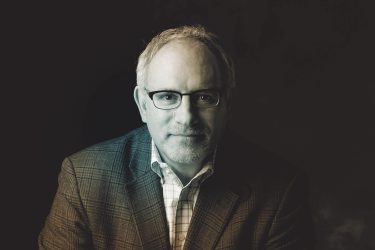Editor’s Eye: Moonshot
More than 8,000 first year and transfer students starting at the University this fall. How in the world will they decide what to do?

I remember exactly where I was when man first walked on the moon. It was Sunday, July 20, 1969. I was 13 years old. And I was lying on a treatment table in the emergency room of a Los Angeles hospital, having my chin stitched together after I got hit in the face with a hockey stick during my bantam team’s practice at a dingy, local ice rink.
In the room was a tiny black-and-white TV, and every so often, the doctor, nurses and my dad would turn away from tending my bleeding chin to catch a glimpse of Neil Armstrong descending the stairs of Apollo 11’s lunar module. Periodically, I leaned up to look, but that was a challenge, because I was weighed down by 30 pounds of goalie equipment.
I was utterly enthralled by what was happening 238,900 miles away—and not just because it made history. When I was 13, I wanted to be an astronaut. True, I had to give up that dream when I found out that astronauts needed to know math and physics. But I got over that pretty easily because in addition to wanting to be an astronaut, I also wanted to be a writer and a photographer and a lawyer and a foreign ambassador and an anthropologist and a filmmaker and a U.S. senator and third baseman for the Dodgers. And that was just before lunch.
One of the biggest problems I faced was deciding which field to pursue. Too many things interested me, and I didn’t want to close off any avenues. Which brings me to the more than 8,000 first year and transfer students starting at the University this fall—intellectually hungry pupils who are coming to our campuses from all over the state, region, nation and world. The UW offers 1,800 undergraduate courses and 236 distinct undergraduate degrees in 122 majors and 28 fields. The three campuses in Seattle, Bothell and Tacoma also offer more than 300 graduate degree programs through more than 20 schools and colleges. How in the world will they decide what to do? Beats me.
Every now and then I take a moment to reflect. I wonder what would I do differently if I knew then what I knew now? All of the fields I first considered still capture my interest. I enviously look at my brother, who does historical impact reports for a state agency in the West. Man, that sounds like fun. But the fact is, I don’t have to leave any of that behind (well, I don’t know if the Dodgers want a 62-year-old playing third base). I can still keep pursuing the interests that sparked my imagination when I was 13. But it won’t be as an astronaut. I still can’t figure out math or physics.